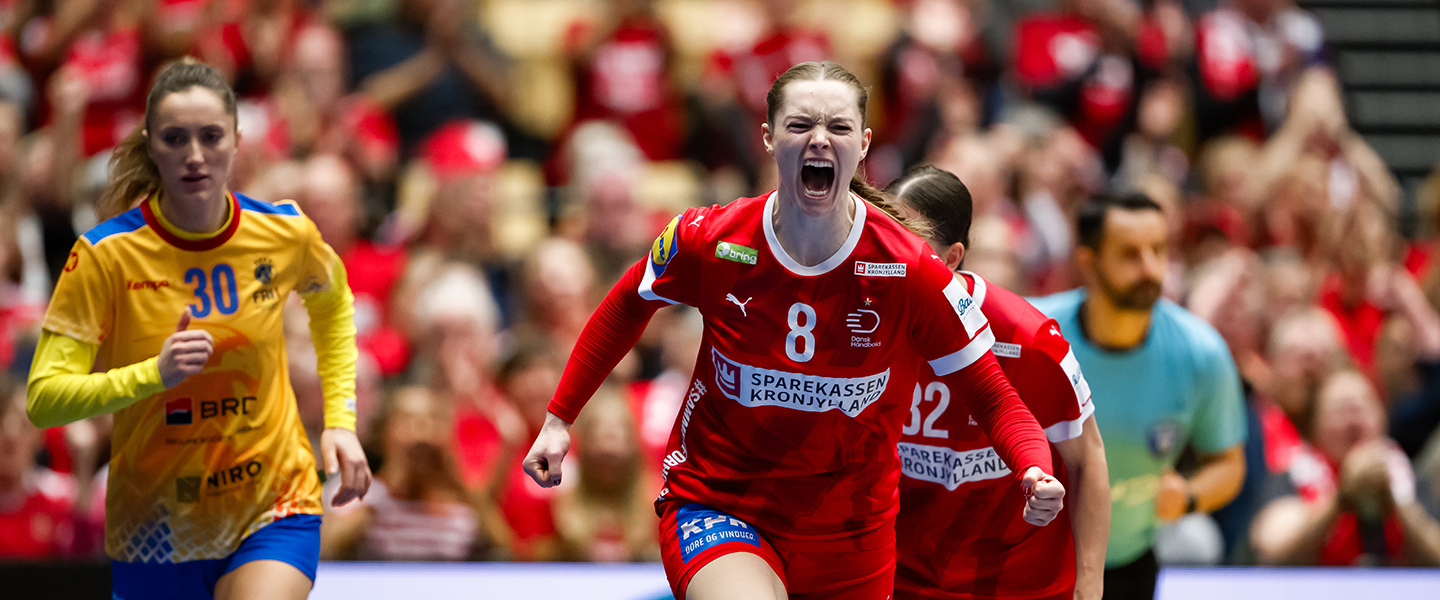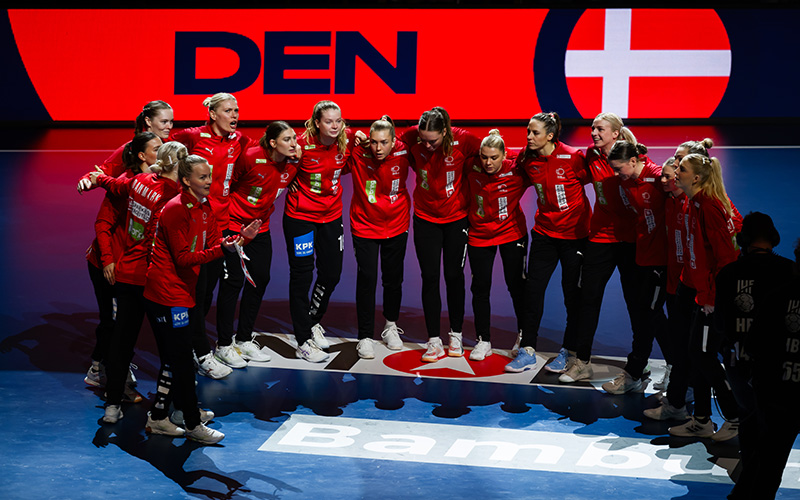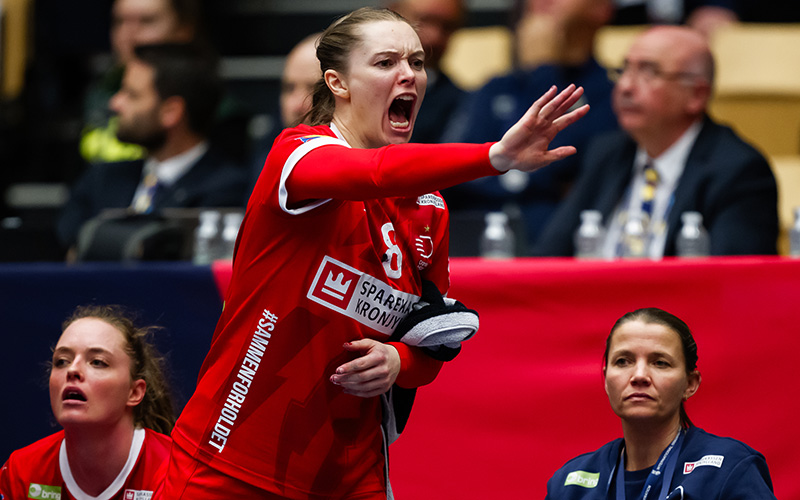Denmark's comeback to the Olympic Games makes Hansen ecstatic
16 Jul. 2024

Celebrating the International Handball Week between 12 and 18 July, the IHF.info website talked with several players regarding the upcoming Paris 2024 Olympic Games, but also trying to find out what handball means for them and how they try to create a legacy in the sport.
The first three appearances for the Denmark women’s national team at the Olympic Games produced three gold medals, at Atlanta 1996, Sydney 2000 and Athens 2004. In the past 20 years, though, Denmark have made it only once at the Olympics and won a single match at London 2012.
12 years ago, the Scandinavian powerhouse lost four matches, after conceding only one loss in the previous three appearances. And then, a long wait. Rio 2016 and Tokyo 2020 saw Denmark out of contention entirely, but with a new generation and an extremely consistent performance in the past four years, Denmark are back whey they belong: between the top 12 teams in the world.
“We are ecstatic to be here, to prepare for the Olympic Games. It has been a long time coming, Denmark waited for a long time to come back, but we are finally here and, of course, the ambitions are high. I know it is going to be difficult, but everybody is on the same page and trying their best to make it a competition to remember,” says Denmark’s left back, Anne Mette Hansen.
At 29 years old, Hansen is one of the most experienced players in Denmark’s roster and has been a cornerstone of the development of the team which secured the bronze medal at the 2021 and 2023 editions of the IHF Women’s World Championship. Spending six years at Győri ETO KC before moving to Metz Handball this summer has also helped Hansen become a dual-threat player, one of the best in her position.
With two EHF Champions League titles in her bag, Hansen, who has also won the gold medal with Denmark at the 2012 IHF Women’s Youth World Championship, has featured 161 times for Denmark’s senior team, scoring 465 goals, having the largest number of goals scored between the players selected by coach Jesper Jensen for the Paris 2024 Olympic Games.

“We have played together a lot over the past years, but I think the Olympic Games are different. There are amazing teams here, at Paris 2024, and we have to play every two days at different hours, even in the morning, so I think that will require some adaptation and we need to be at our best throughout the whole competition,” says Hansen about the challenge ahead.
“But, of course, nobody is complaining. The training camps have been really good. We are all properly motivated and we are all trying our best, because this might be a chance in a lifetime, therefore we need to take advantage and play at our best.”
After wandering through the major international competitions over the last decade, Denmark seem to be finally back at their best, as Hansen and older teammates like goalkeeper Sandra Toft, right back Louise Burgaard, line player Kathrine Heindahl and right wing Trine Østergaard Jensen form the core of a strong team.
And Denmark’s consistency has been otherworldly in the past years. Since taking the fourth place at the EHF EURO 2020, when they surprisingly lost against Croatia in the bronze medal match, the Scandinavian side has been always on the podium at the EHF EURO or the IHF Women’s World Championship.
Last year, a dramatic loss in the semi-final against Norway, in extra-time, translated into a bronze medal at the 2023 IHF Women’s World Championship. At Spain 2021, Denmark also finished third and snatched the bronze medal. One year later, at the EHF EURO 2022, Denmark played the final, led in the first half, but were eventually topped by Norway and had to settle for the silver medal.
The rivalry between Denmark and Norway will be rekindled at Paris 2024, where the two Scandinavian powerhouses face off in the preliminary round, while Denmark are also due to face three other European sides – Germany, Slovenia and Sweden. Their last opponent will be the Republic of Korea, a plucky Asian side, which always delivers at the Olympic Games.
“Like I have said, the competition is difficult, because there are only 14 players, not 16, there are tough matches every two days, but everything is special because it is the Olympics and Denmark are back on this stage, so I really am eager to start and play for the first time in my career in this amazing competition,” adds Hansen.

Prior to the Olympic Games, the IHF also celebrates the International Handball Week, which spans between 12 and 18 July and will be marked by handball activities throughout the world. For the players called up for the national teams, the celebration will mean more work and intense training for the biggest prize of all, with the focus switching on the race for a gold medal in Paris.
But why is handball so important for Hansen and how did she get to play handball?
“Both my parents played handball, therefore it was difficult not to be sucked into the sport quite fast. When I was little, I thought about this being my life, but I never imagined I was going to play professionally and be here, at the Olympic Games. There are plenty of little children starting, but not all of them get to represent the national team, so the feeling is truly special and I am happy with what I did so far,” says Hansen.
Surely, Hansen would be happier with another medal at the Olympic Games to complete her collection of three bronze medals at the IHF Women’s World Championship and one silver medal at the EHF EURO. And it would just confirm Denmark’s status as one of the best sides in the world.

